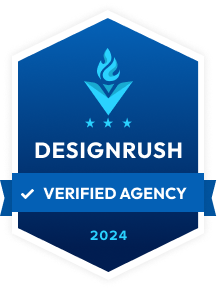
Introduction
Custom software development plays a crucial role in helping businesses streamline their operations, enhance efficiency, and meet their unique requirements. However, embarking on a custom software development project can be complex and challenging. In this article, we will provide you with insights and key considerations to ensure the success of your custom software development projects.
Understanding Custom Software Development
Custom software development refers to the process of designing, building, and deploying software solutions tailored specifically to meet the unique needs of a business or organization. Unlike off-the-shelf software, custom software is created from scratch and can be fully customized to align with your specific goals, processes, and workflows.
Identifying Project Goals and Objectives
Before initiating a custom software development project, it is essential to clearly identify your goals and objectives. This involves understanding the problem that the software will solve, defining the desired outcomes, and determining the expected benefits for your business. Having a clear vision of the project’s purpose ensures that all development efforts are aligned towards achieving the intended results.
Gathering Requirements and Defining Scope
Once the goals and objectives are established, the next step is to gather requirements and define the scope of the project. This involves conducting thorough discussions with stakeholders, understanding their needs and expectations, and documenting all the necessary features and functionalities. A comprehensive and well-defined scope ensures that the project stays on track and minimizes the risk of scope creep.
Choosing the Right Development Methodology
Selecting an appropriate development methodology is crucial for the success of a custom software development project. Agile methodologies such as Scrum or Kanban are often preferred as they promote flexibility, collaboration, and iterative development. However, the choice of methodology should align with the project’s size, complexity, and organizational culture.
Selecting a Reliable Development Team
Building a reliable development team is paramount for the success of any custom software development project. It is essential to carefully evaluate the expertise, experience, and track record of potential development partners or in-house team members. Collaborating with skilled professionals who understand your project’s requirements, can effectively communicate, and adapt to changes is vital.
Creating a Detailed Project Plan
A detailed project plan serves as a roadmap for the entire custom software development project. It outlines the tasks, milestones, timelines, and resource allocations necessary to achieve project goals. The plan should consider potential risks, dependencies, and contingencies to ensure efficient project execution and timely delivery.
Managing Communication and Collaboration
Effective communication and collaboration are key to successful custom software development projects. Regular communication channels should be established between the development team, stakeholders, and project managers. Utilizing collaboration tools and conducting frequent progress updates ensure transparency, address concerns promptly, and foster a sense of teamwork.
Implementing Effective Quality Assurance
Quality assurance is crucial to deliver a reliable and high-performing custom software solution. Rigorous testing, code reviews, and quality checks should be incorporated throughout the development process. Automated testing tools can help identify bugs, ensure functionality, and improve overall software quality.
Testing and Deployment
Thorough testing is essential to identify and rectify any issues before deployment. The software should undergo various testing phases, including unit testing, integration testing, and user acceptance testing. Once all tests are successfully passed, the software can be deployed to the production environment.
Monitoring and Maintenance
After deployment, monitoring and maintenance activities are vital to ensure the ongoing performance and reliability of the software. Regular monitoring helps identify potential issues, track usage patterns, and optimize system performance. Prompt bug fixes, security patches, and feature enhancements contribute to a seamless user experience and long-term success.
Ensuring Scalability and Future Growth
Custom software should be designed with scalability in mind. As businesses evolve and grow, the software should accommodate increasing demands and handle larger data volumes. Scalability ensures that the software can adapt and support your organization’s future goals without significant rework or system limitations.
Addressing Security Concerns
Security is a critical consideration in custom software development projects. The software should be built with robust security measures to protect sensitive data, prevent unauthorized access, and comply with relevant regulations. Regular security audits and updates should be conducted to address emerging threats and vulnerabilities.
Evaluating Success and Continuous Improvement
Measuring the success of a custom software development project is essential to determine its impact on the business. Key performance indicators (KPIs) should be established to assess the software’s effectiveness, user satisfaction, and return on investment. Based on these insights, continuous improvement initiatives can be implemented to refine and enhance the software’s functionality.
Conclusion
Successful custom software development projects require careful planning, effective communication, and skilled teams. By considering the outlined key considerations, businesses can increase the chances of achieving their desired outcomes. Custom software offers immense potential for organizations to optimize processes, gain a competitive edge, and drive growth.
Ready to embark on your custom software development project? Contact us now to discuss your unique business requirements and unlock the potential for streamlined operations, enhanced efficiency, and a competitive advantage. Our experienced team of software development professionals is ready to guide you through every step of the process. Submit your inquiry today and let’s bring your vision to life!
FAQs
1. Why is custom software development important for businesses?
Custom software development is crucial for businesses because it allows them to create tailored solutions that address their specific needs and challenges. Off-the-shelf software may not fully align with a company’s unique processes or requirements, limiting its efficiency and effectiveness. Custom software, on the other hand, offers the flexibility to design and build a solution that precisely caters to the organization’s workflows, goals, and objectives. This level of customization can lead to improved productivity, streamlined operations, enhanced customer experiences, and a competitive advantage in the market.
2. How can I determine the scope of my custom software development project?
Determining the scope of a custom software development project requires a comprehensive understanding of the organization’s needs and goals. Start by conducting thorough discussions with stakeholders and end-users to identify their pain points, requirements, and desired outcomes. Document all the necessary features, functionalities, and integration points that the software should encompass. Consider the complexity of the project, budget, and timeline constraints while defining the scope. Collaborating with experienced software development professionals can also help in accurately assessing the scope and identifying potential areas of expansion or optimization.
3. What are some popular development methodologies for custom software projects?
Agile methodologies such as Scrum and Kanban are widely used and popular for custom software development projects. Agile methodologies emphasize flexibility, collaboration, and iterative development. They involve breaking down the project into manageable increments called sprints, where each sprint delivers a functional piece of the software. This approach enables continuous feedback, adaptation to changing requirements, and early delivery of value. However, other methodologies like Waterfall, Lean, or Hybrid models may be more suitable depending on the project’s specific requirements, size, complexity, and organizational culture.
4. What qualities should I look for in a reliable development team?
When selecting a development team for your custom software project, several qualities are worth considering. Look for a team with strong technical expertise in the required technologies and frameworks. Experience in similar projects or industries can be valuable as well. Effective communication and collaboration skills are essential to ensure seamless interaction between the development team and stakeholders. Flexibility, adaptability, and the ability to understand and align with your business objectives are also crucial. Additionally, consider the team’s track record, client testimonials, and the quality of their previous work to assess their reliability and competence.
5. Why is quality assurance crucial in custom software development?
Quality assurance (QA) plays a vital role in custom software development to ensure that the final product meets the required standards and specifications. QA activities include rigorous testing, code reviews, and quality checks at various stages of the development process. By conducting comprehensive testing, potential issues, bugs, or performance bottlenecks can be identified and addressed early on. QA helps in delivering a reliable and robust software solution that functions as intended, provides a seamless user experience, and minimizes the risk of software failures or security vulnerabilities.




















Your article helped me a lot, is there any more related content? Thanks!
I’m glad to know that the article was useful! Although I can provide information on many topics, knowing more about your specific interests will help me guide you to relevant content. Can you tell me what topic or aspect you are particularly interested in? This way, I can provide more focused advice or information. Thank you for your feedback!
Thanks for sharing. I read many of your blog posts, cool, your blog is very good.
Thank you for your kind words and reading the blog post! I’m glad you found them good and valuable. If there is any topic that interests you or you have any questions, feel free to let me know. Your feedback is greatly appreciated!
Your article helped me a lot, is there any more related content? Thanks!
I’m glad the article was helpful! For more related content, you can check out more posts on our blog section and filter the relevant category.
Thanks for sharing. I read many of your blog posts, cool, your blog is very good.
Thank you for your kind words! I’m glad you enjoy the blog. If you have any questions or topics you’d like me to cover, feel free to let me know.
Can you be more specific about the content of your article? After reading it, I still have some doubts. Hope you can help me.
Of course! I’d be happy to help clarify any doubts you have. Please let me know which specific parts of the article you’re unsure about, and I’ll provide more detailed explanations.
Your article helped me a lot, is there any more related content? Thanks!
Can you be more specific about the content of your article? After reading it, I still have some doubts. Hope you can help me.